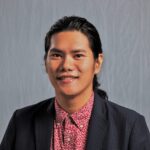International Communication Association Pre-Conference 2024

Keynote Speakers
 |
Magdalena Wojcieszak (Professor, Department of Communication, University of California, Davis)
Magdalena Wojcieszak (Ph.D. U. of Pennsylvania) is a Professor of Communication at UC Davis, an Associate Researcher at the U of Warsaw, Poland (PI ERC Consolidator NEWSUSE), an Affiliate Faculty in Computational Social Science and a Member of the Graduate Group in Computer Science at UC Davis. Previously, she directed ERC Starting Grant EXPO at the U. of Amsterdam (2018-2023). Prof. Wojcieszak examines how people select (political) information online, the effects of digital media on extremity, polarization, and (mis)perceptions, and interventions to incentivize platform algorithms to promote quality and diverse political contents. She has (co-)authored ~90 articles (incl. Science, Nature, Science Advances, PNAS), is the Associate Editor of Political Communication, is part of the U.S. 2020 Facebook & Instagram Election Study an independent partnership with Meta to study the impact of Facebook and Instagram on the U.S. 2020 elections, and of the Misinformation Committee at the Social Science One. She has received awards for her teaching and research (including being elected the Fellow of the International Communication Association). |
 |
Edson C Tandoc Jr. (Professor, Wee Kim Wee School of Communication and Information, Nanyang Technological University, Singapore)
Edson C. Tandoc Jr. is a President’s Chair Professor of Communication Studies at Nanyang Technological University (NTU) in Singapore, where he is the Associate Chair for Research at the Wee Kim Wee School of Communication and Information (WKWSCI). He is the founding Director of NTU’s Centre for Information Integrity and the Internet (IN-cube). His studies have focused on the impact of journalistic roles, new technologies, and audience feedback on the news gatekeeping process. He has also looked at how readers make sense of critical incidents in journalism and take part in reconsidering journalistic norms; and how changing news consumption patterns facilitate the spread of fake news. |
Registration has closed.
Theme
The proliferation of computational methods has broadened the scope of numerous sectors within communication studies, including in journalism, with an increasing number of scholars leveraging these state-of-the-art techniques to engage with pertinent issues in this domain. In parallel, journalism is itself currently experiencing profound shifts in its daily practices, business models, professional norms, content creation, and global societal impact. Much of journalism research now centres on automated, data, and immersive journalism. This preconference aims to initiate substantive discussions among scholars of varied expertise and origins, and facilitate robust interdisciplinary collaborations into the methodological, theoretical, and practical aspects of computational journalism studies.
This conference has five primary objectives:
- Pushing the boundaries of journalism studies by exploring innovative methodologies and advancing theoretical frameworks.
- Identifying and demonstrating the transformative power of computational methods on journalism practice, seeking to further understand and articulate the profound shifts in journalistic norms, practices, and frameworks.
- Nurturing communities among scholars who share an interest in employing computational approaches to either conduct research on journalism or practice journalism.
- Encouraging meaningful dialogues between scholars with diverse methodological and theoretical backgrounds, hailing from various subdomains such as journalism studies, political communication, communication and technologies, computational methods, and more.
- Facilitating networking and collaboration opportunities for scholars at various career stages, across diverse areas of expertise and geographical locations, with an emphasis on inclusivity and representation of scholars from the global south.
Format
This pre-conference will be hosted by the Department of Communications and New Media at the National University of Singapore. While we will provide you with an option to attend virtually, we encourage you to visit Singapore, especially if you are planning to attend ICA in Gold Coast. Singapore serves as a very convenient transit hub, connecting travellers from most parts of the world to Australia. You will have the option to indicate your attendance preference during the submission.
Timeline
Deadline for abstract submission: 26 January 2024
Acceptance notifications: 1 March 2024
Deadline for registration: 21 April 2024 for accepted presenters, 1 May 2024 for other attendees
Pre-conference: 18 June 2024
Topics may include (but are not restricted to) the following:
- Automated content analysis: Using AI (including Large Language Models) for analysing news content, with applications in the domains of misinformation detection, sentiment analysis, topic modelling, computational narrative analysis.
- AI and Journalism: The impact of generative AI, bots, deepfakes and other digital agents on journalism practice.
- Analyses of visual and multimodal media: developing computational tools for analysing visual narratives in news media, including image-as-data and video-as-data paradigms.
- Predictive and real-time analytics in journalism: leveraging big data and machine learning to forecast news events trends, audience engagement, and real-time responses.
- Network analysis of news spreads: using network science to analyse the spread and influence of news articles on social platforms.
- Platformisation and Journalism: The impact of datafication, commodification, and curation of platforms in news production, dissemination, and engagement.
- Data Journalism: topics related to the analysis, reporting and visualisation of data in
newswork and their Impacts. - Virtual Reality, Augmented Reality, and Immersive Journalism: transforming journalism through immersive storytelling.
- Ethical considerations in computational journalism: investigating the ethical Implications of
using computational methods (such as AI generated content and deepfakes) in journalism.
Submission
To submit an application, please fill up the Qualtrics form here (you will need an abstract of 350-500 words) by 26 January 2024. We expect to announce our decisions by 1st March 2024. We strongly encourage applications from early-career researchers and scholars from the Global South, and/or those researching Global South contexts.
For any questions, please send an email to cnmbox36@nus.edu.sg.
Organising Committee
Subhayan Mukerjee, National University of Singapore
Shangyuan Wu, National University of Singapore
Tian Yang, The Chinese University of Hong Kong
Yilang Peng, University of Georgia
Sílvia Majó-Vázquez, Vrije Universiteit Amsterdam
Thorsten Quandt, University of Münster

